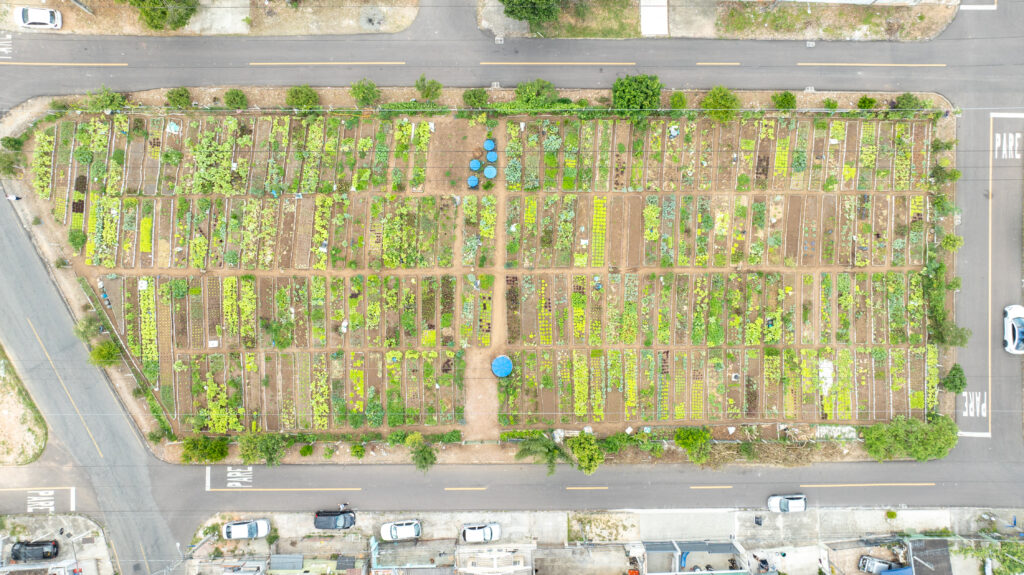Cultivar Energia is a corporate socio-environmental program, whose main objective is to make community gardens viable in urban spaces beneath Copel power lines in partnership with municipal governments, promoting the replacement of idle and underused areas with green and productive areas. Internally, it is consolidated as an auxiliary strategy in preventing irregular and risky occupations for the population. For the community, the main benefits are the revitalization of urban space, the encouragement of food security and the possibility of generating income.
The program converges with municipal public policies on urban agriculture, and strengthens a set of actions in favor of the Sustainable Development Goals of the United Nations World Organization – UN, especially with regard to SDG 2 – Zero Hunger and Sustainable Agriculture; SDG 10 – Reduce inequality within and between countries, SDG 11 – Sustainable cities and communities, and SDG 17 – Strengthen the means of implementation and revitalize the global partnership for sustainable development. It also encourages dialogue between the public sector, private sector and community in the search and development of joint responses to social challenges and sustainable solutions for cities.
The program began in 2013 with a pilot project involving three community gardens and was consolidated in 2016 with the publication of Administrative Norms and Procedural Instructions (NAC and IAP). Since then, it has gradually expanded the number of revitalized urban areas and beneficiaries.
In 2022, 445 families benefited from 12 productive gardens.
In 2023, the Cultivar Energia Program enabled two new vegetable gardens – Paraíso Dembinski, in Curitiba, and Jardim Lolata, in Londrina. In addition, the Augusta B Community Garden, also in Curitiba, was revitalized and expanded. The number of families benefiting increased to 535, while the number of vegetable gardens implemented increased to 14.
In 2024, the Cultivar Energia Program enabled eight new vegetable gardens: one in Curitiba – Dembinski II; two in Siqueira Campos – Novo Horizonte I and Novo Horizonte II; 1 in Almirante Tamandaré – Jardim Roma; 2 in Londrina – Mundo Ideal and Parigot de Souza III; and 1 in Foz do Iguaçu – Vale do Sol. Horta Semear, the first vegetable garden involving a partnership with a private company, also in Curitiba, began operating, but has not yet been formally inaugurated.
Currently, the program has 24 active community gardens in 10 municipalities in Paraná – Maringá, Curitiba, Ponta Grossa, Cascavel, Francisco Beltrão, Londrina, Umuarama, Almirante Tamandaré, Foz do Iguaçu, and São José dos Pinhais. The number of gardens has doubled in the last year, and the number of families benefiting has grown to 657.
Copel employees also support the program by purchasing the products produced in the gardens from solidarity shopping groups organized weekly in Maringá and Curitiba (at the KM3 headquarters and at the Smart Copel Hub). In this way, they can get to know and become important agents in maintaining the program, consuming the products and encouraging small producers. The benefits thus extend to the communities, the company and the employees in a sustainable and continuous manner.






